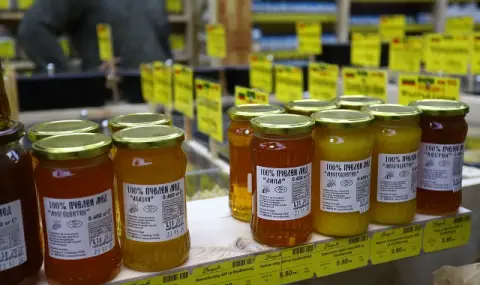Turkey is one of the largest producers of honey in the world. But the country is apparently producing tons of fake honey. In all likelihood, such honey is also sold in Europe.
Turkey is one of the most important players in the global honey market: after China, it is the second largest supplier of honey in the world.
The country on the border between Europe and Asia produces 115,000 tons of honey per year, which is equivalent to about a quarter of China's production capacity. The top five largest honey producers also include Ethiopia, Iran and India.
There are 100,000 beekeepers in Turkey with about 9 million hives. According to the Ministry of Agriculture, there are about 500 companies operating in the sector, and the United States and Germany are the largest importers of Turkish honey.
Ankara - the capital of fake honey
However, the sector is currently facing a crisis: more and more fake honey is being produced in Turkey - a problem that the Turkish police are already taking measures against. Tons of fake honey have been confiscated in recent months during numerous raids. In one of them, 8,150 tons of glucose, fructose and sugar, as well as 100,000 labels for different brands of honey, were found in September in the capital Ankara. But no one knows the actual amount of fake honey produced in Turkey.
Any honey that is mixed with sugar syrup or contains artificial flavors, colors, sweeteners, glucose or corn syrup is considered fake.
According to the Turkish Ministry of Agriculture, there are 43 producers of such honey in the country. At the end of last year, the ministry even announced their names. Ankara is said to be the center of this industry: most of the production facilities are located there. At least two of the fake honey producers distribute their products through large supermarket chains, the agriculture ministry also claims. The market value of the fake honey confiscated so far is estimated at around 25 million euros.
Harm to Turkey's image
The industry is worried that this is damaging Turkey's reputation as a producer of quality honey - and is therefore calling for state intervention, stricter regulations and sanctions for fake honey producers.
According to Ziya Şahin, chairman of the Central Association of Turkish Beekeepers (TAB), the problem is the lack of regulation. "Our beekeepers are angry and ask us why we are not taking action. But we do not have the authority to exercise control. I am not even allowed to ask on the street whether a given honey is real or not," Şahin told DW.
However, fake honey is not just a Turkish problem - fake honey is also produced in many other parts of the world. "Our problem is that we do not want Turkey to be perceived as a paradise for fake honey. This is unacceptable," Şahin added.
Can Sezen, CEO of Anavarza Bal, one of the country's leading honey producers, confirms this assessment: "Fake honey can also be found in China and Europe. It would be unfair to say that the problem only affects Turkey. However, Turks are particularly inventive when it comes to such things," he says.
According to Sezen, fake honey producers closely monitor when the state orders inspections - and then specifically limit their production. "These products can be found in every supermarket. After the names of the fake honey producers were published, the revelations must continue. Our population must know about these fake products," the head of Anavarza Bal appealed.
The role of price
One of the main reasons for the spread of fake honey is the economic situation in Turkey. Artificial honey costs only one fifth of real honey: if a kilogram of real honey costs around 8 euros, fake honey can be found for 1.60 euros. This makes the fake product more accessible to many consumers - especially in times of declining purchasing power. And Turkey has been suffering from high inflation for years.
According to experts, customs control is not sufficient in recognizing fake honey. Therefore, it is possible that fake honey from Turkey is already available abroad. Zia Shahin thinks this is very likely: "It is possible that the fake honey is first exported illegally to Arab countries and from there it reaches other parts of the world," he says.
There are already indications that fake honey has also reached Europe. About a year ago, French authorities confiscated 13 tons of honey laced with Viagra, also known as "erection honey". According to official data, it came from illegal supply chains in Turkey, Tunisia and Thailand. And in 2023, the European Anti-Fraud Office (OLAF) found that 46% of the samples of imported honey tested were fake. Turkish honey fared even worse - 14 out of 15 samples tested were fake.
